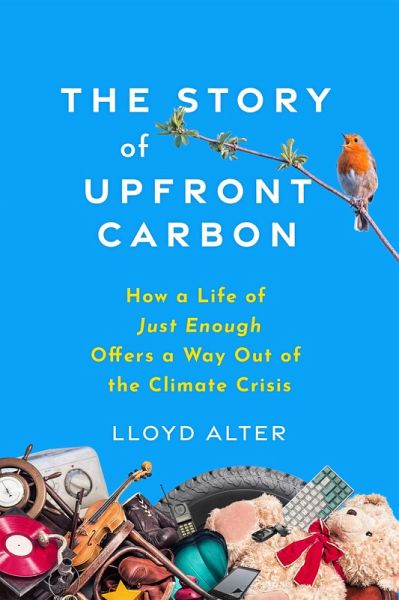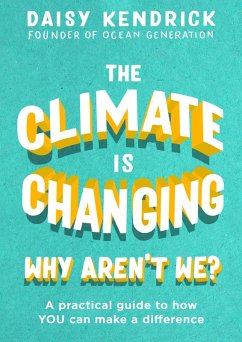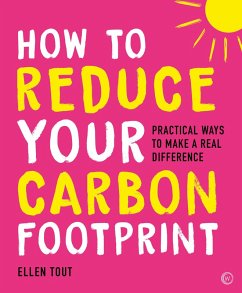
The Story of Upfront Carbon (eBook, ePUB)
How a Life of Just Enough Offers a Way Out of the Climate Crisis
Versandkostenfrei!
Sofort per Download lieferbar
12,95 €
inkl. MwSt.
Weitere Ausgaben:

PAYBACK Punkte
6 °P sammeln!
When you look at the world through the lens of upfront carbon, everything changes The astonishing upfront carbon of everyday objects from coffee cups to heat pumps, and why electric bikes, not electric cars, are the answer.Think that buying an electric car or switching to a heat pump is going to save the planet? Think again."Upfront carbon" refers to all emissions involved in making your car, your home, or any other item. These invisible embodied carbon emissions matter a lot. As we weed out fossils fuels and incorporate more renewables into our energy supply, upfront carbon becomes increasing...
When you look at the world through the lens of upfront carbon, everything changes
The astonishing upfront carbon of everyday objects from coffee cups to heat pumps, and why electric bikes, not electric cars, are the answer.
Think that buying an electric car or switching to a heat pump is going to save the planet? Think again.
"Upfront carbon" refers to all emissions involved in making your car, your home, or any other item. These invisible embodied carbon emissions matter a lot. As we weed out fossils fuels and incorporate more renewables into our energy supply, upfront carbon becomes increasingly dominant compared to operating emissions, yet it is often ignored.
By focusing on consumption rather than production, The Story of Upfront Carbon covers:
Leavened with wit and packed with concrete strategies for minimizing the ecological footprint of transportation, agriculture, consumer goods, the built environment, and more, this highly readable and accessible guide is required reading for a world on the brink.
AWARDS
The astonishing upfront carbon of everyday objects from coffee cups to heat pumps, and why electric bikes, not electric cars, are the answer.
Think that buying an electric car or switching to a heat pump is going to save the planet? Think again.
"Upfront carbon" refers to all emissions involved in making your car, your home, or any other item. These invisible embodied carbon emissions matter a lot. As we weed out fossils fuels and incorporate more renewables into our energy supply, upfront carbon becomes increasingly dominant compared to operating emissions, yet it is often ignored.
By focusing on consumption rather than production, The Story of Upfront Carbon covers:
- Why we are fixated on energy efficiency, not carbon, and why this needs to change
- Why carbon calculations are so fiendishly difficult
- How the simple idea of sufficiency for individuals and whole economies is a powerful strategy to avert looming climate catastrophe
- How big-picture thinking and a systemic approach to production can help guide the transition to degrowth and an equitable, zero-carbon society.
Leavened with wit and packed with concrete strategies for minimizing the ecological footprint of transportation, agriculture, consumer goods, the built environment, and more, this highly readable and accessible guide is required reading for a world on the brink.
AWARDS
- DISTINGUISHED FAVORITE 2025 Independent Press Award: Social/Political Change
Dieser Download kann aus rechtlichen Gründen nur mit Rechnungsadresse in A, D ausgeliefert werden.













